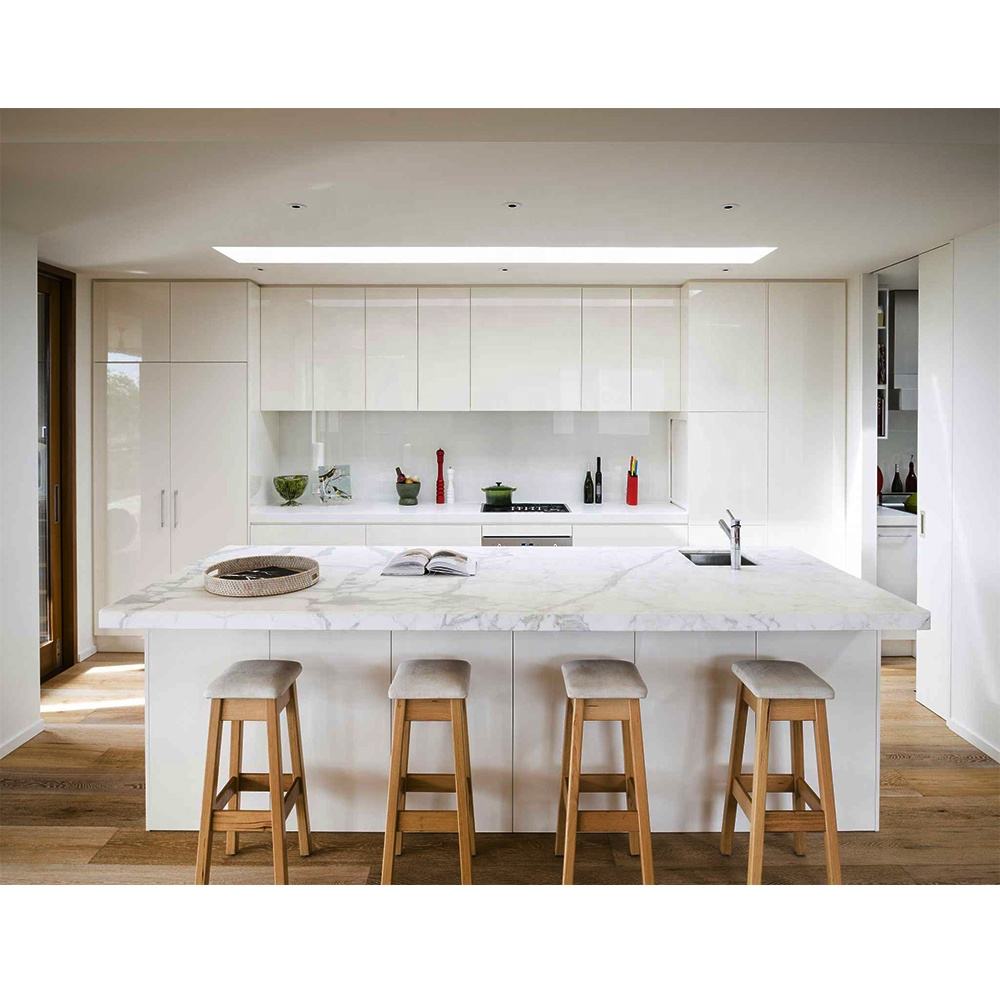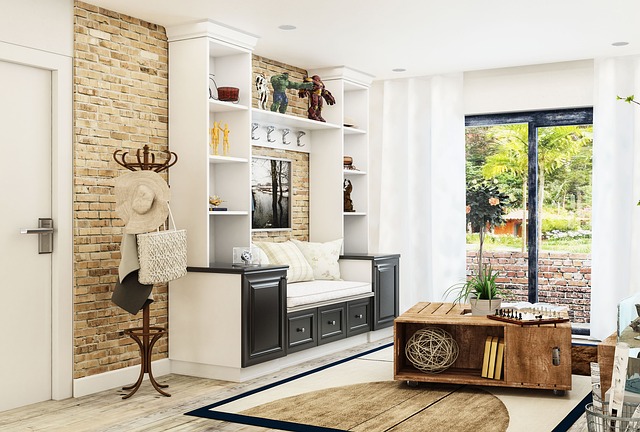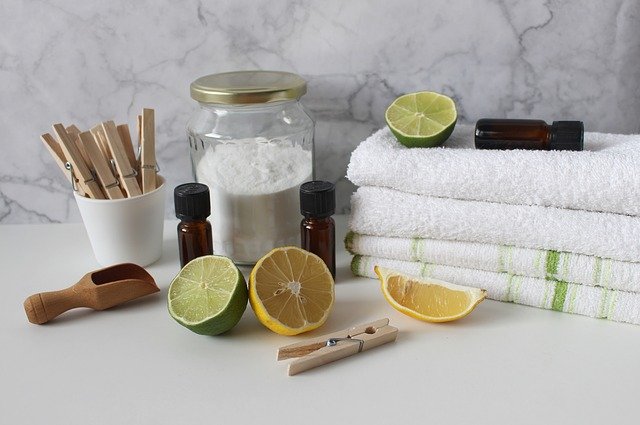Porcelain Benchtops have been a very recent trend. Knowing the pros and cons of Porcelain Benchtops will be very helpful if you’ve been thinking about remodeling your kitchen. If you’ve heard about them and are wondering about what they are and if they’re a suitable fit for your home, Porcelain is a stone worth investing in.

What are Porcelain Benchtops?
While Porcelain Benchtops have just lately gained popularity in other countries, they have long been popular in Europe.
Porcelain is a man-made product formed from a clay called ‘China clay,’ which is made up of a mineral called Kaolinite, as well as Silica, Feldspar, and other minerals, all of which combine to give Porcelain its strength and durability. This mixture of ingredients is thrown together in a kiln and burned at extremely high temperatures, yielding a solid substance that is nearly impenetrable to stains, heat, UV radiation, scratches, chipping, and cracks.
Pigmented glazes are used to produce varied patterns and colors on the Porcelain Slab throughout the production process. Glazed or unglazed Porcelain is available. Glazing boosts the slab’s longevity while also adding a lustrous gloss and reducing porosity (which means a decreased risk of staining).
Varieties
Porcelain Benchtops, like other worktops, come in a wide range of colors and designs. These can reflect natural components (e.g. Marble, Wood Grain, Concrete). But a significant disadvantage of glazed Porcelain is that the pattern or color is only printed on the surface and not throughout the slab or tile. So, keep in mind that the pattern and color will not be there on the inside of the slab. This implies the internal color may differ from the exterior, which might be an issue if the surface is chipped (because the differing interior color will show). Unglazed Porcelain has the same hue on the outside as it does on the inside.
When it comes to the edges, Porcelain Benchtops are unlike any other. Porcelain edge styles are more limited than genuine stone or quartz since the patterns and colors are only printed on the surface. For example, cutting a rounded edge would erase the pattern. To retain the surface pattern and color, most individuals use basic square edges.
Durability
Porcelain Slabs, while incredibly durable once installed, can be quite light and thin. Because Porcelain Benchtops are so thin, they can be put directly over existing countertops in a kitchen (or bathroom) remodel.
Because full-sized slabs are tough to cut and work with, finding a Benchtop fabricator who will install a Porcelain Slab might be difficult. Many fabricators dislike dealing with Porcelain because the tiny slabs crack more easily than Granite or Marble during fabrication. Due to this, it can be difficult to locate a fabricator who is willing to deal with them. Porcelain, on the other hand, is exceedingly hard and long-lasting once put. When handling, moving and cutting very large slabs, cracking becomes a major challenge.
Porcelain, on the other hand though, is extremely hard and durable once fitted. They are not considered fragile at this time. After the Benchtops are fitted, cracking is rarely an issue. They are not, however, indestructible. When chopping and slicing, it’s best to use a cutting board to protect Porcelain Benchtops. Because the pattern and color are just on the surface, chips, cracks, and scratches are frequently evident. One caveat: if you choose solid color Porcelain with no pattern, the color inside the slab will match the surface, making chips and cracks less obvious.
Low Maintenance
Another significant advantage of using porcelain for your Kitchen Benchtops is that it requires very little upkeep both before and after installation. Porcelain is manufactured into huge slabs, reducing the number of seams and grout to clean and maintain. Porcelain also does not require any sealing after installation or in the future owing to the production process.
Porcelain is a fantastic Benchtop material since it is so simple to clean. During the production process, a glaze is created that renders this material impermeable. Washing Porcelain with warm, soapy water is all it takes to keep it clean. You may even use harsh chemicals like bleach on Porcelain without fear of harm because the glaze protects it. There is almost no better alternative for a low-maintenance Benchtop material than Porcelain.
Porcelain has more advantages and disadvantages as mentioned below:
Advantages-
- Porcelain Benchtops are heat-resistant. They can take a hot pot or skillet right on the surface (but it is always recommended to use a hot pad or trivet just in case!)
- Porcelain is a hard, long-lasting material (once installed)
- Scratch resistance is a feature of Porcelain (except for ceramic knives)
- Porcelain is non-porous (i.e., it doesn’t absorb liquids) and stain-resistant, thus it usually doesn’t need to be sealed.
- Porcelain is a simple material to clean and maintain.
- Porcelain Slabs are available in a wide range of variations and patterns.
- Porcelain is UV resistant, it will not discolor if exposed to direct sunshine for an extended period of time.
- Porcelain is a sustainable material.
- Benchtops made of Porcelain may be placed directly over existing countertops.
- Porcelain Benchtops are inexpensive, with slabs, and installation costs ranging lower than both Quartz and Granite Benchtops.
- Acidic meals will not etch or dull Porcelain (like Marble does)
Disadvantages-
- During the manufacturing, transporting, and installation of Porcelain, it is easy to harm it.
- Blunt force can cause the Porcelain to chip, scrape, or break.
- Ceramic blades, while scratch-resistant, may harm Porcelain Benchtops.
- When Porcelain is chipped or cracked, the chip can be highly visible since the pattern is only printed on the surface of the slab and does not extend into the inside.
- Due to the interior of the slab being a different hue, porcelain has restricted edge possibilities. The edges should be trimmed with anything other than square edges.
- Finding someone certified to create and/or install Porcelain Benchtops might be challenging.
Hopefully, you now have enough information about Porcelain Benchtops to decide if this is a good option for your new house or kitchen remodel. With its various benefits and variations, it’s bound to make everyone fall in love.






